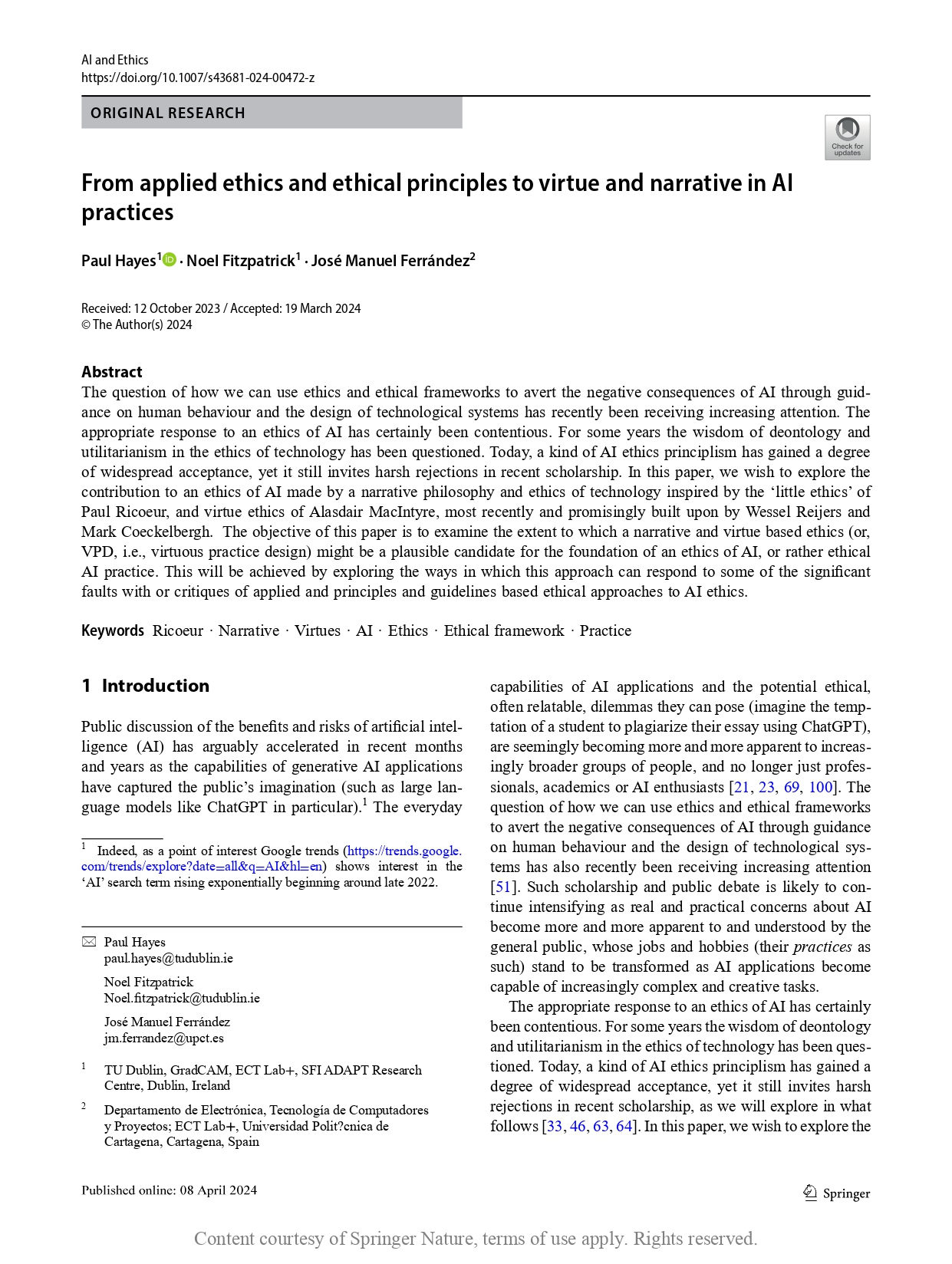
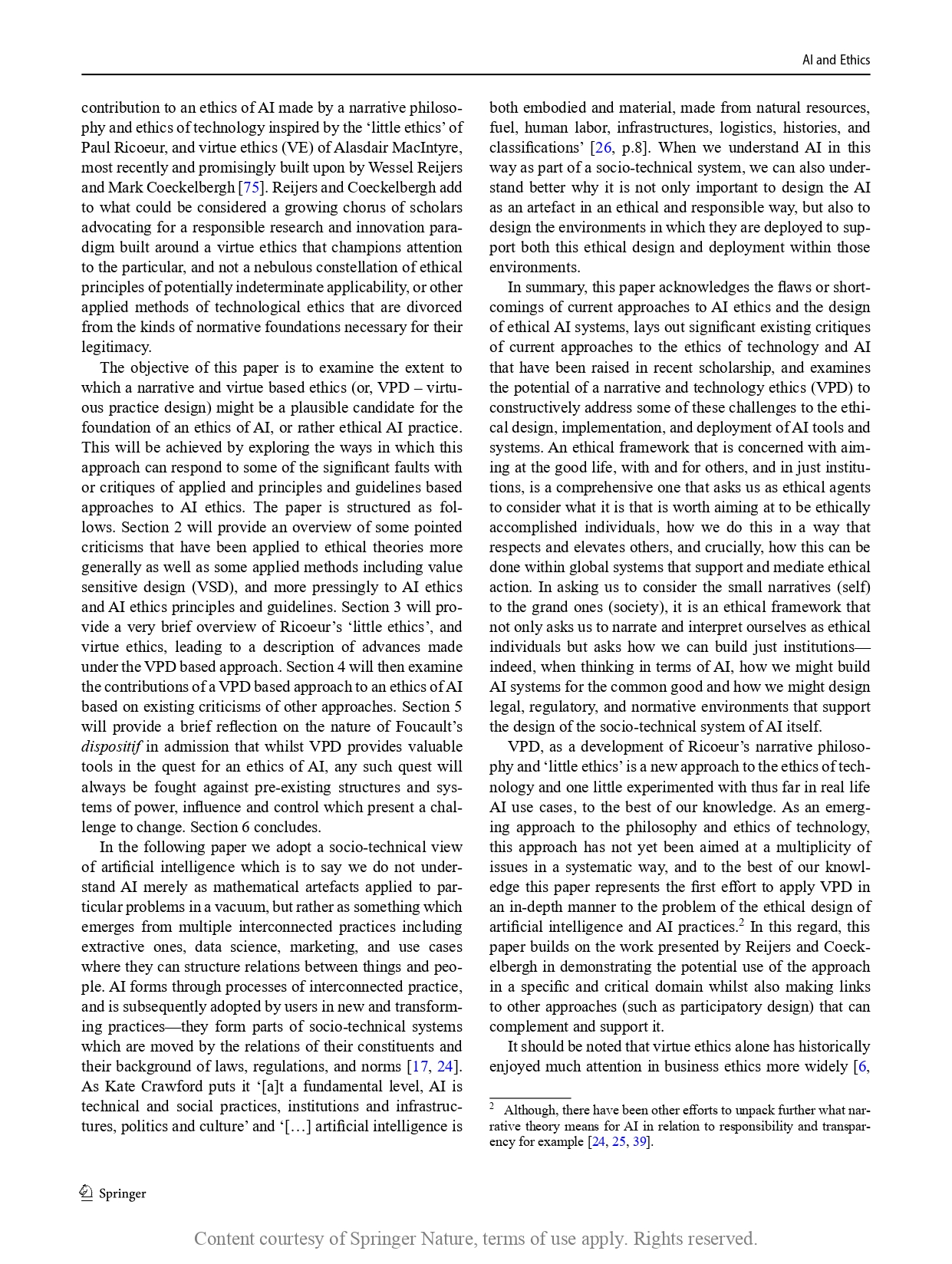
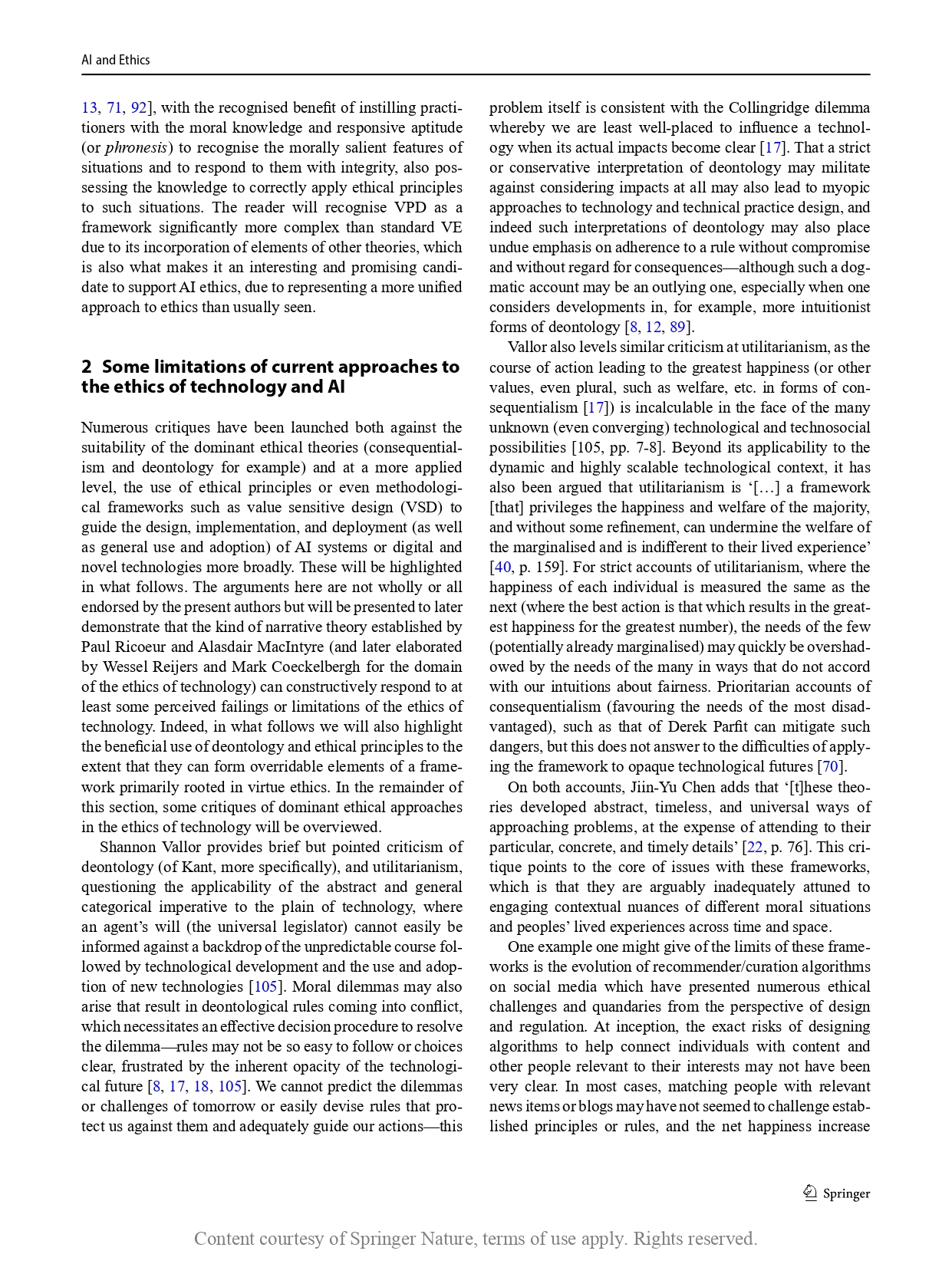
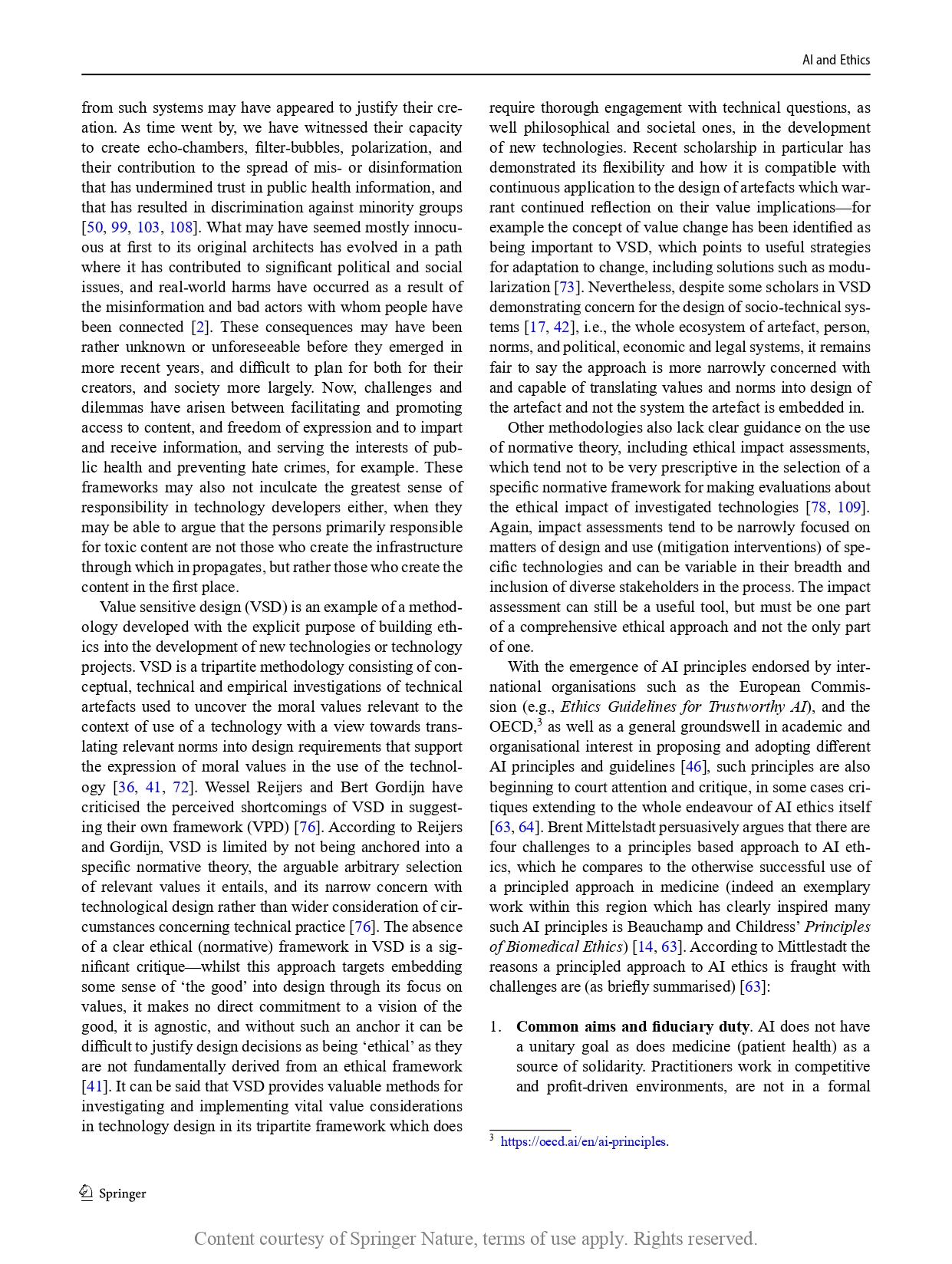
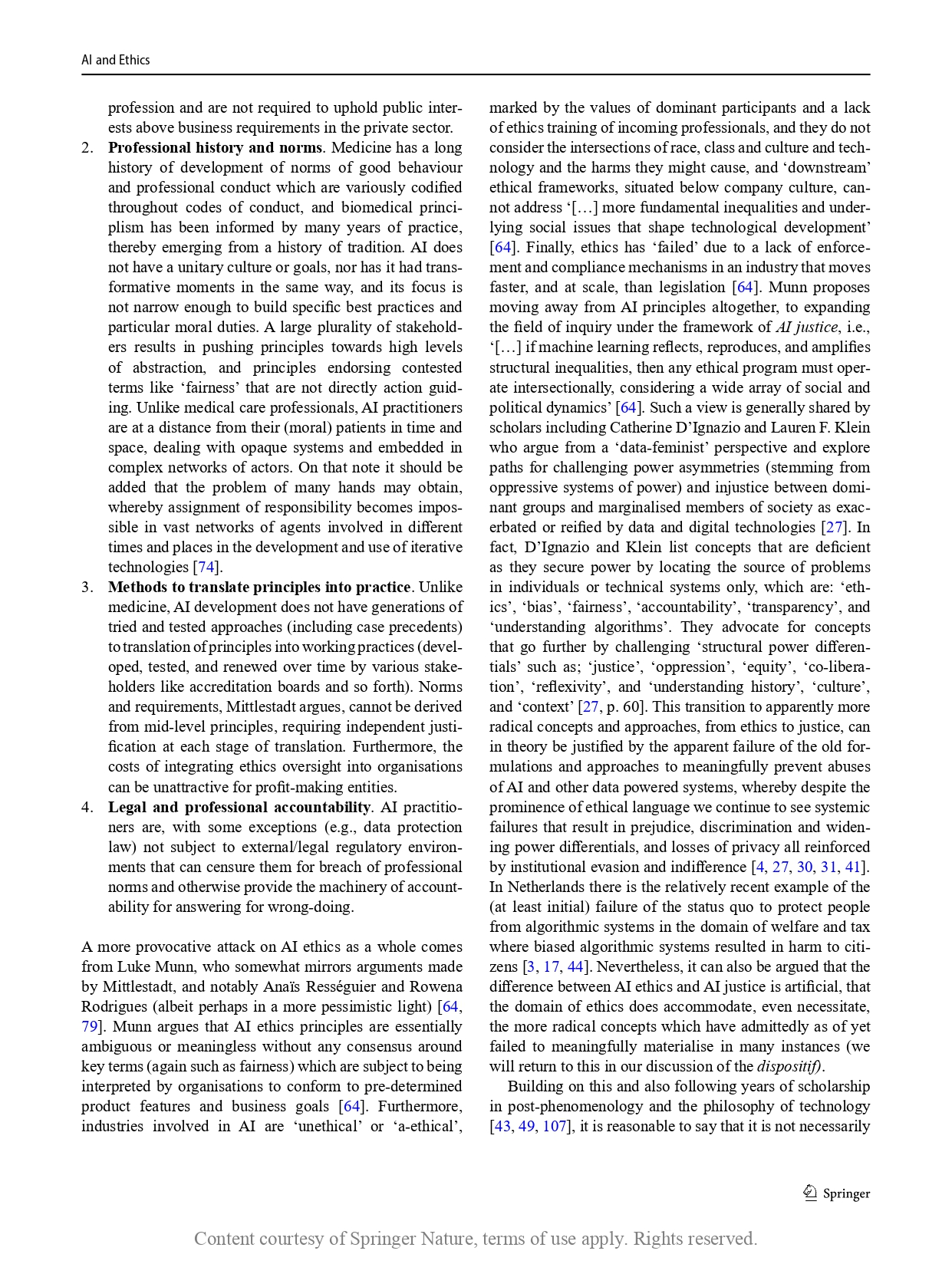
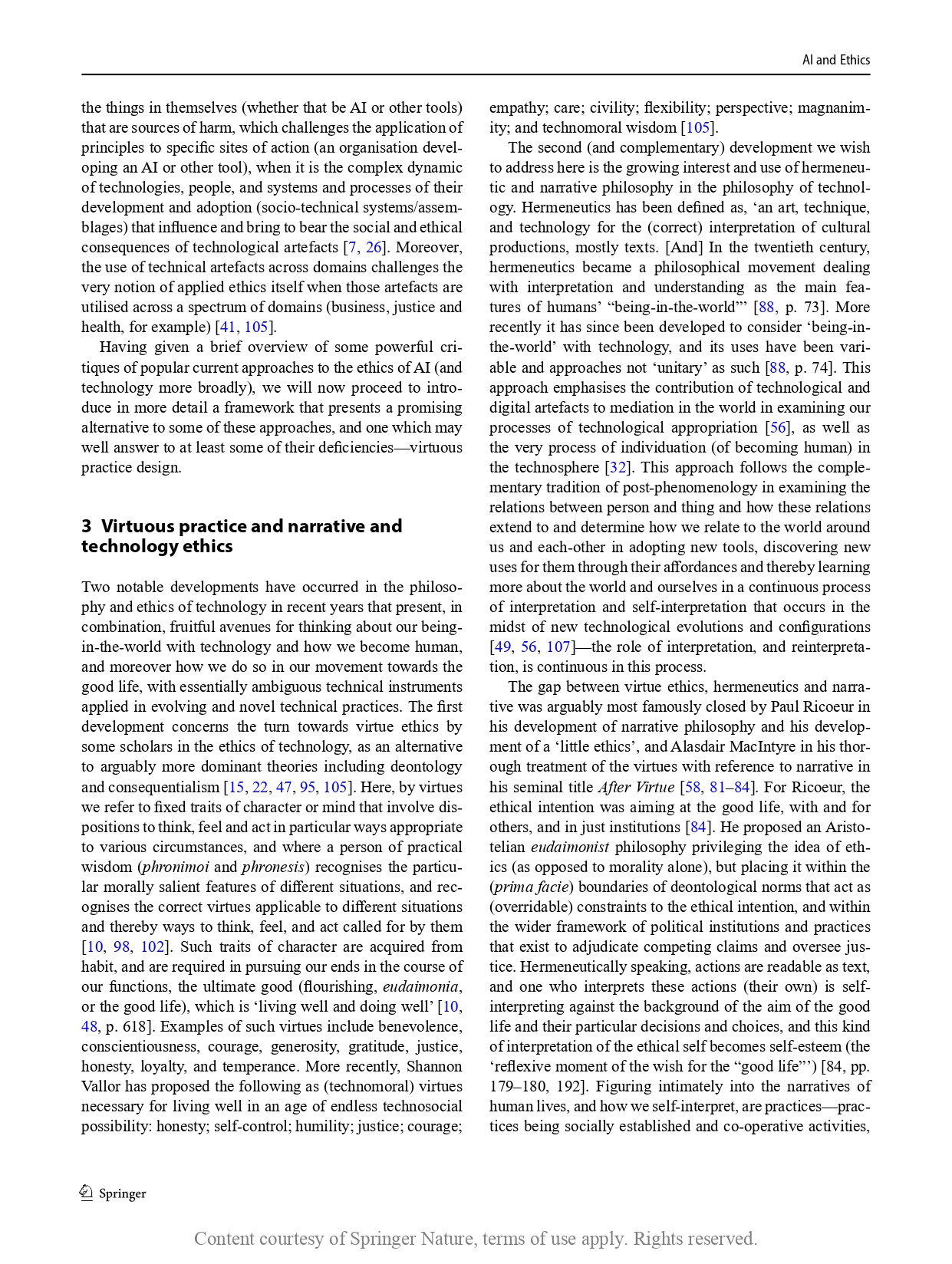
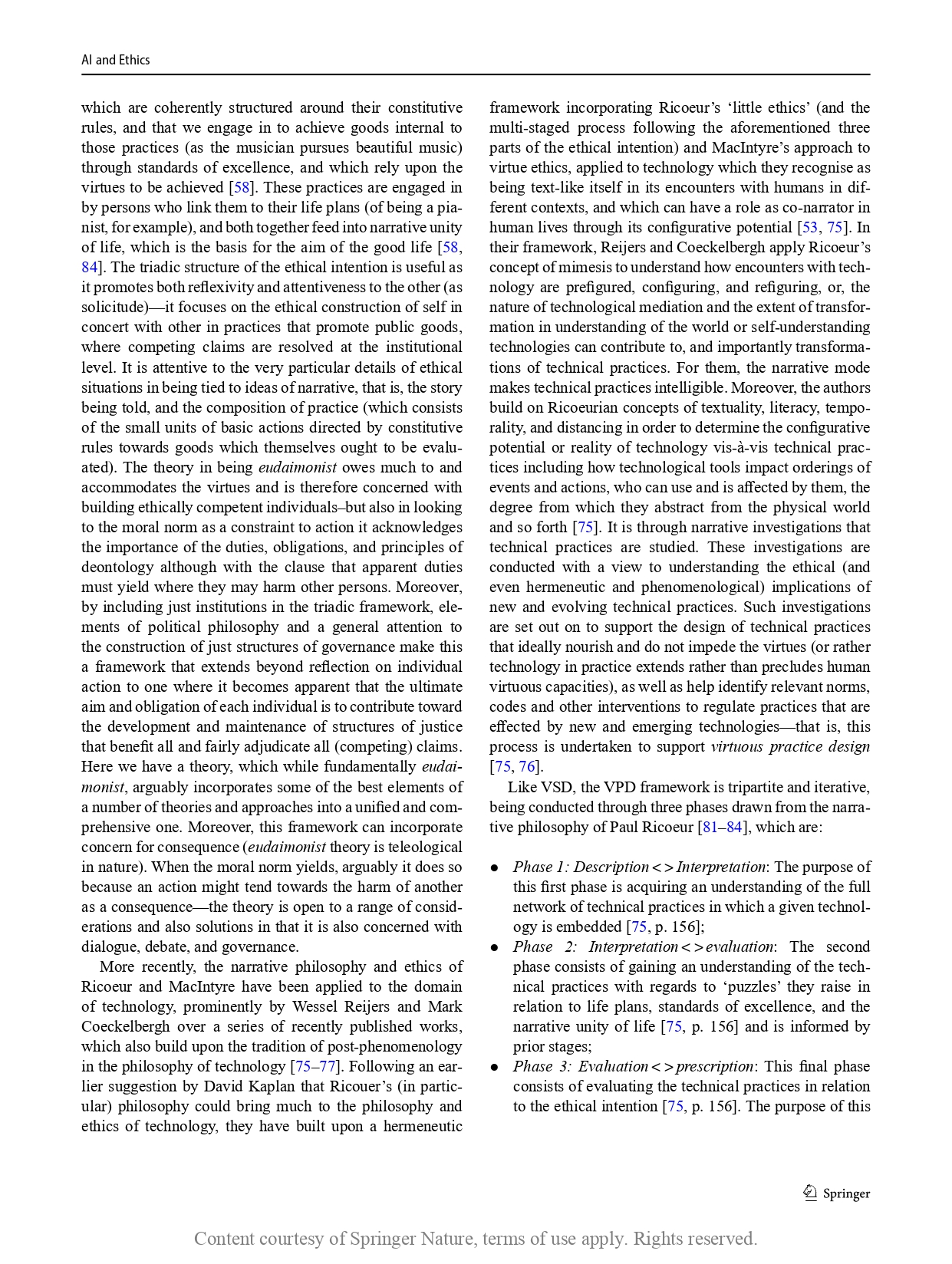
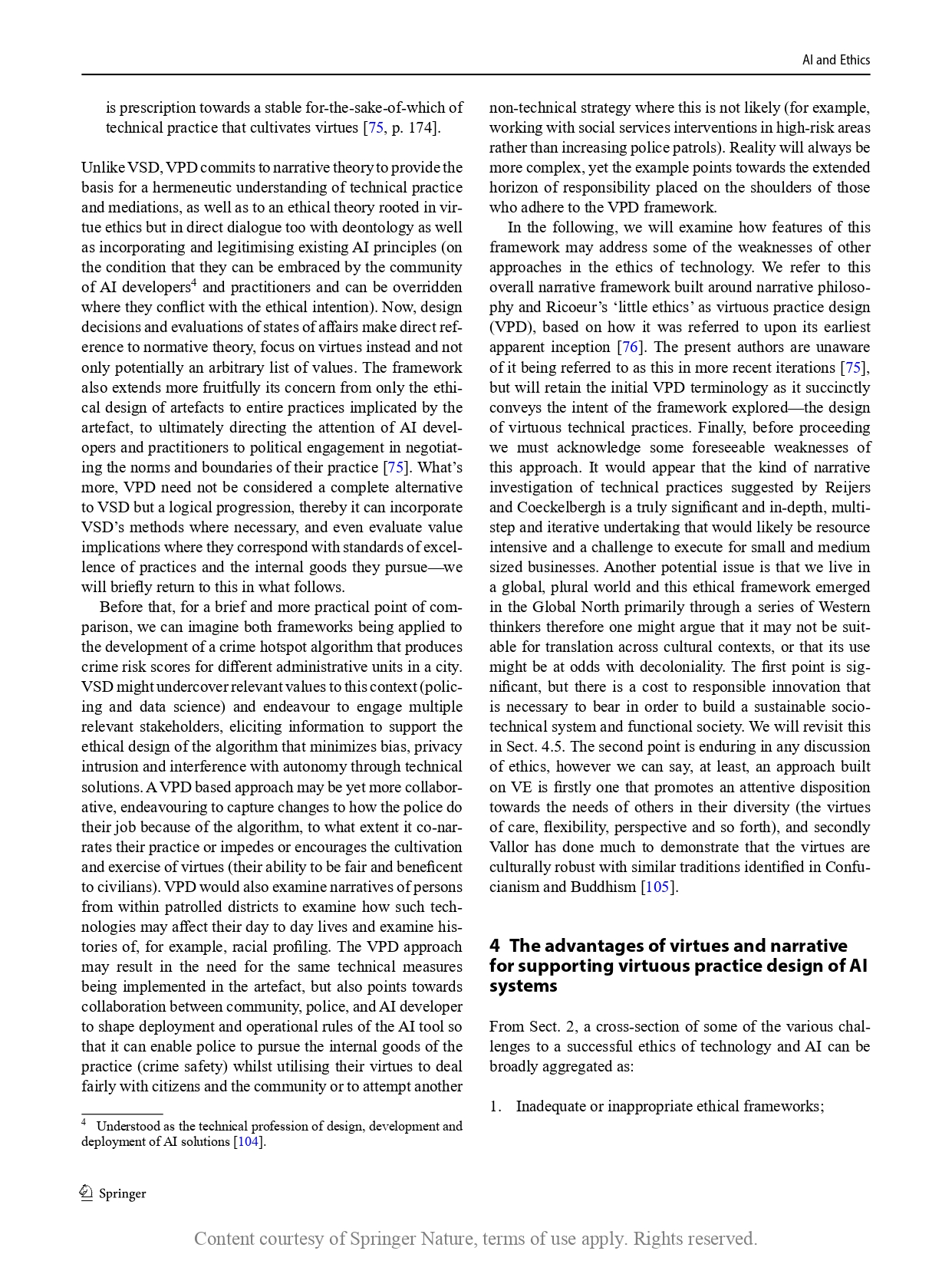

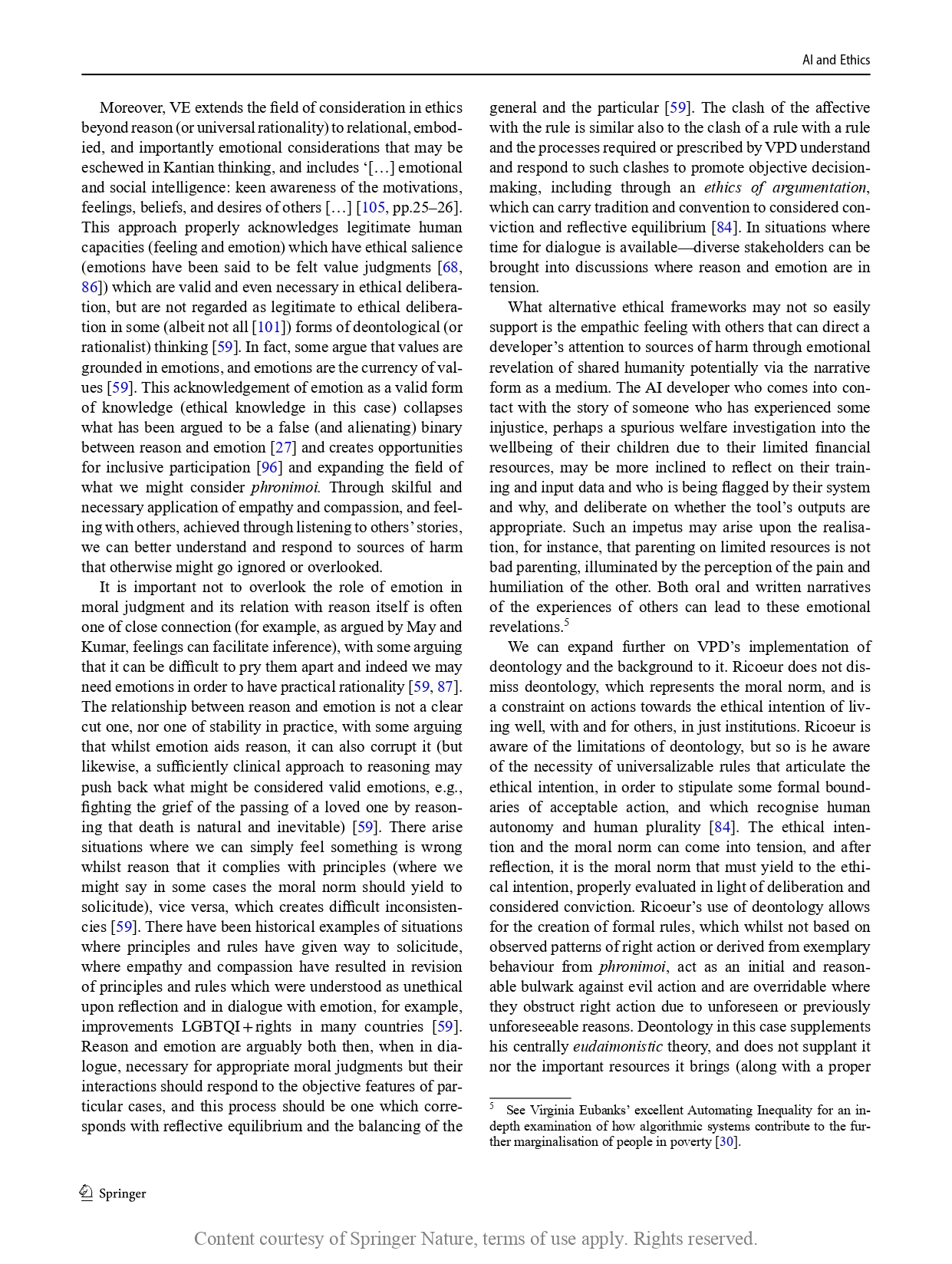
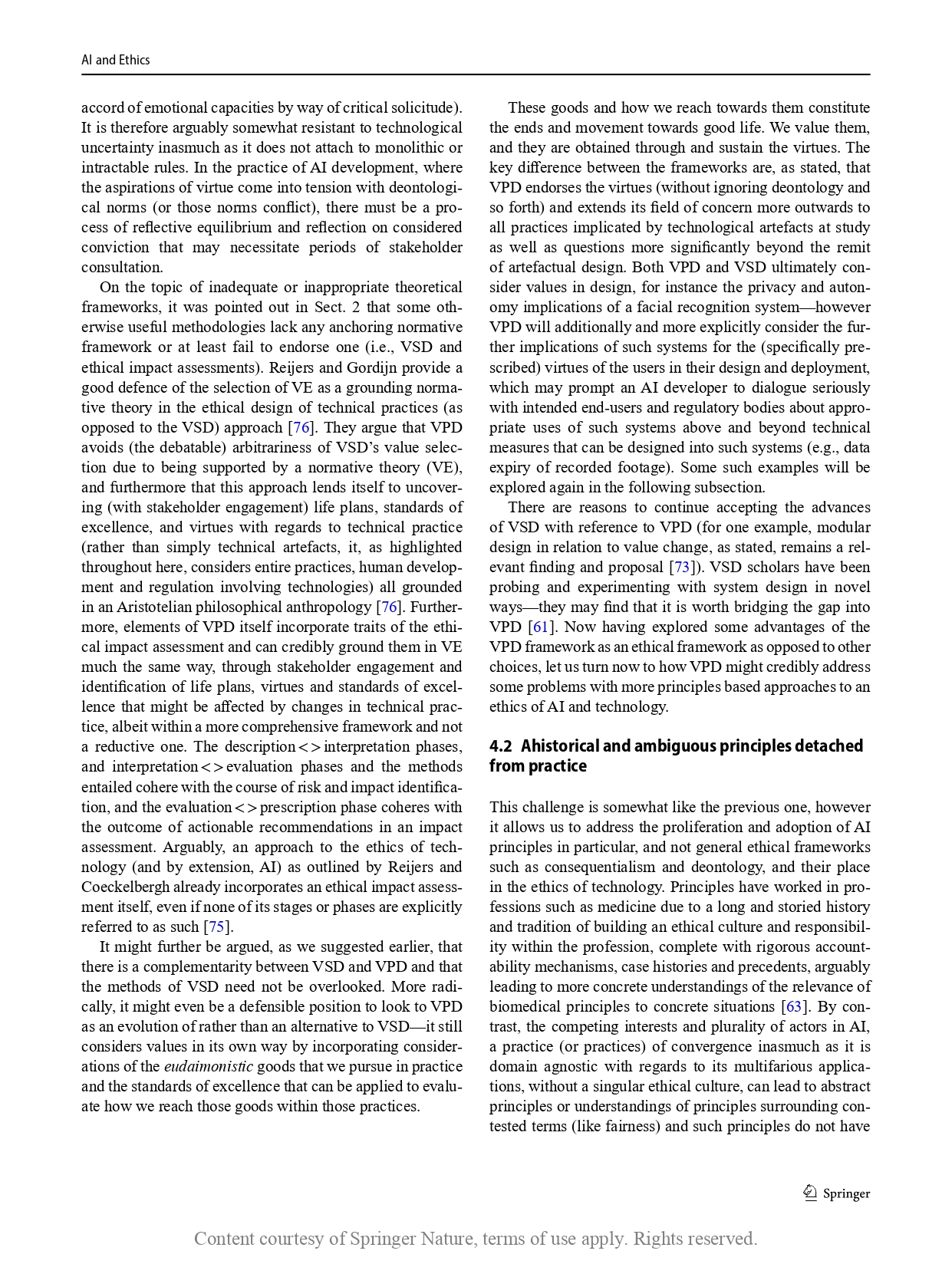
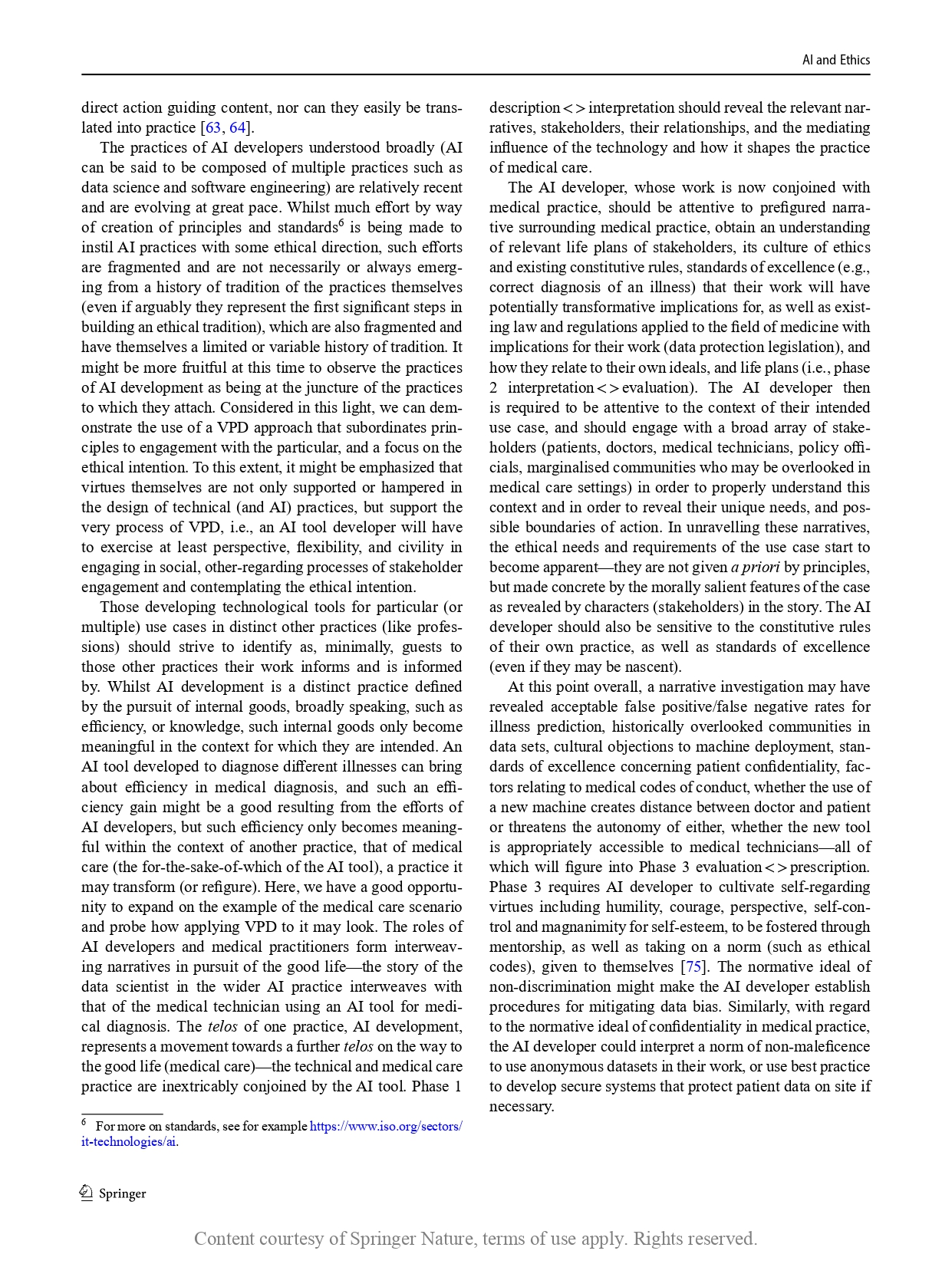
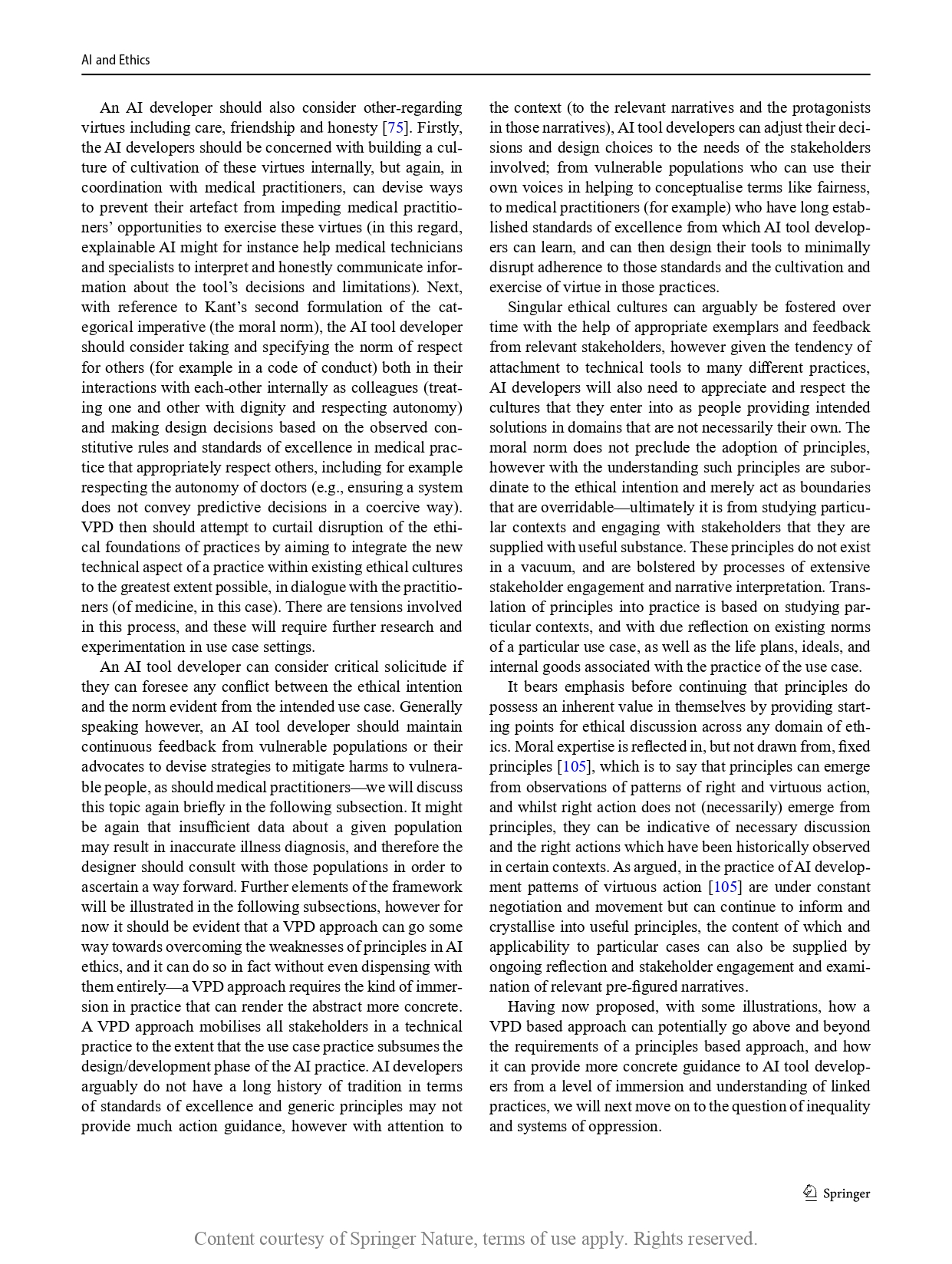
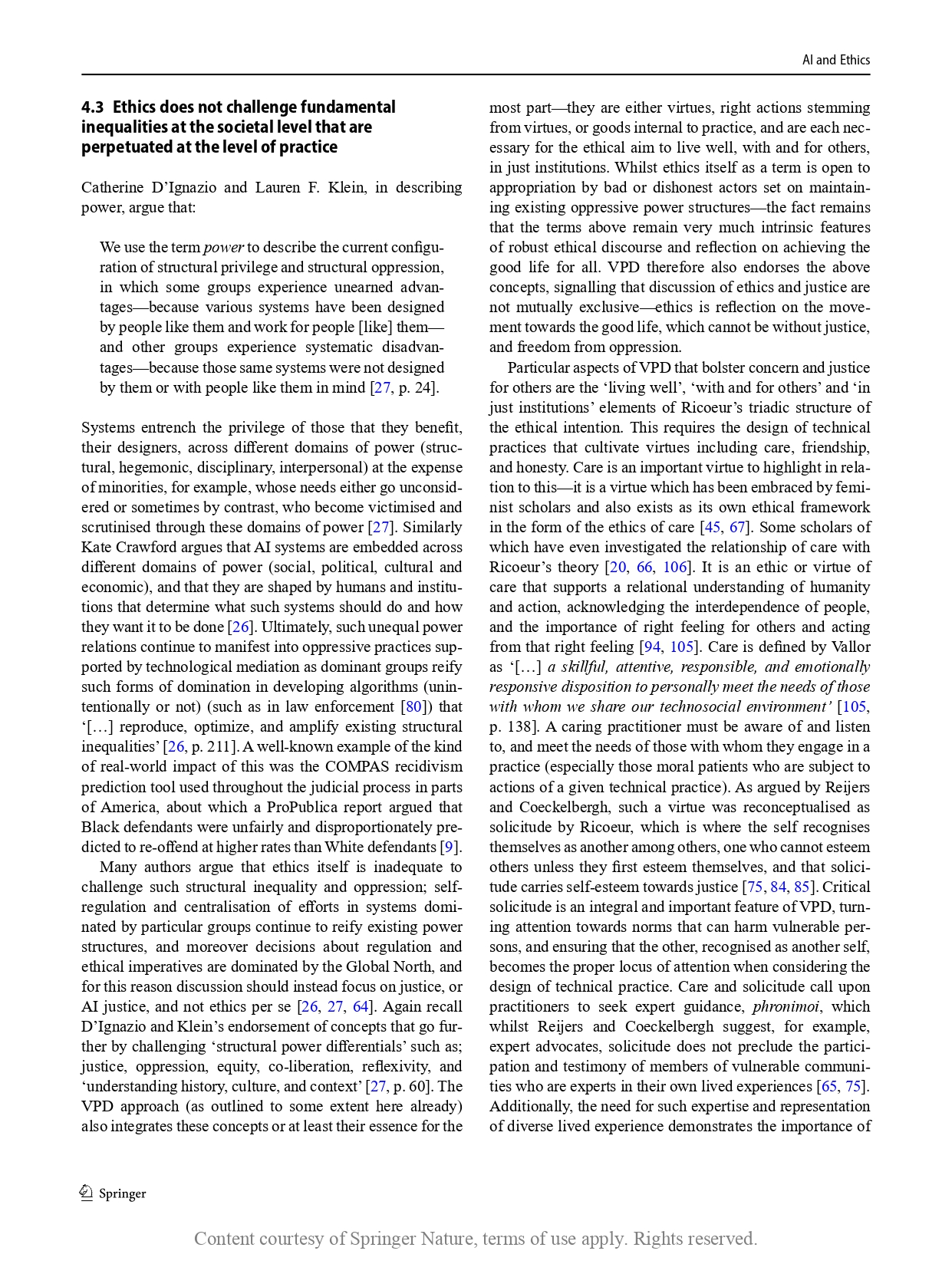
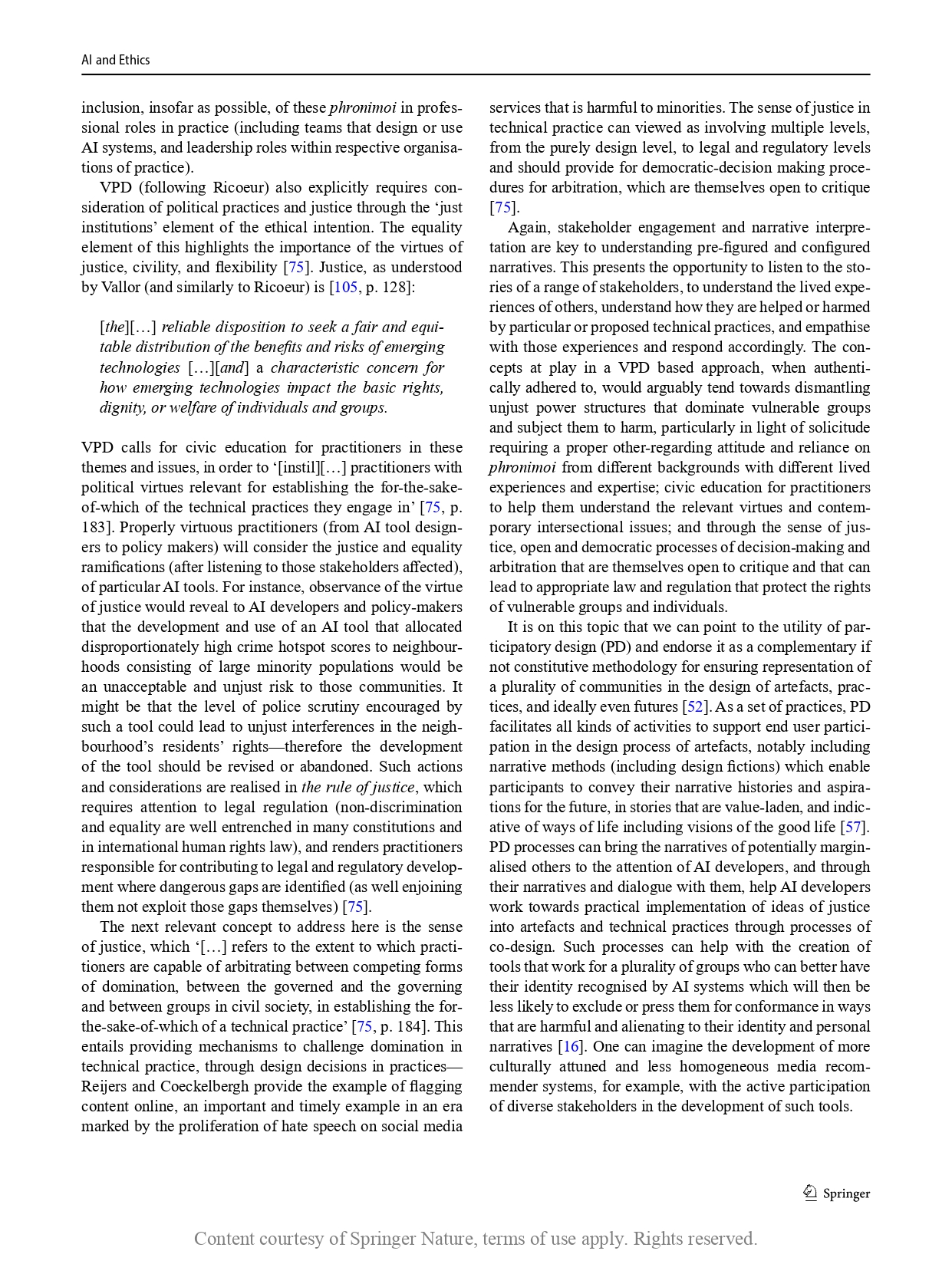
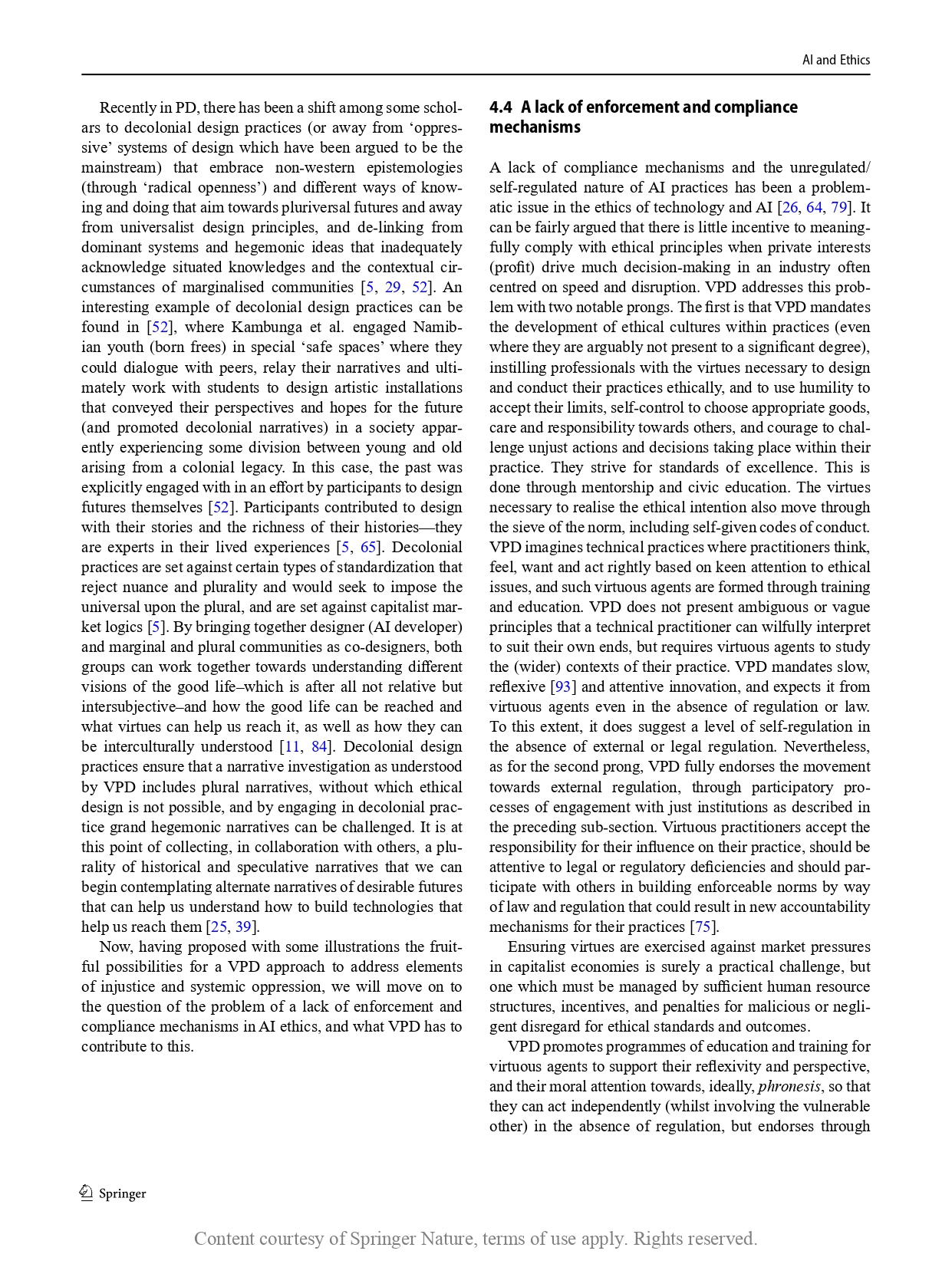
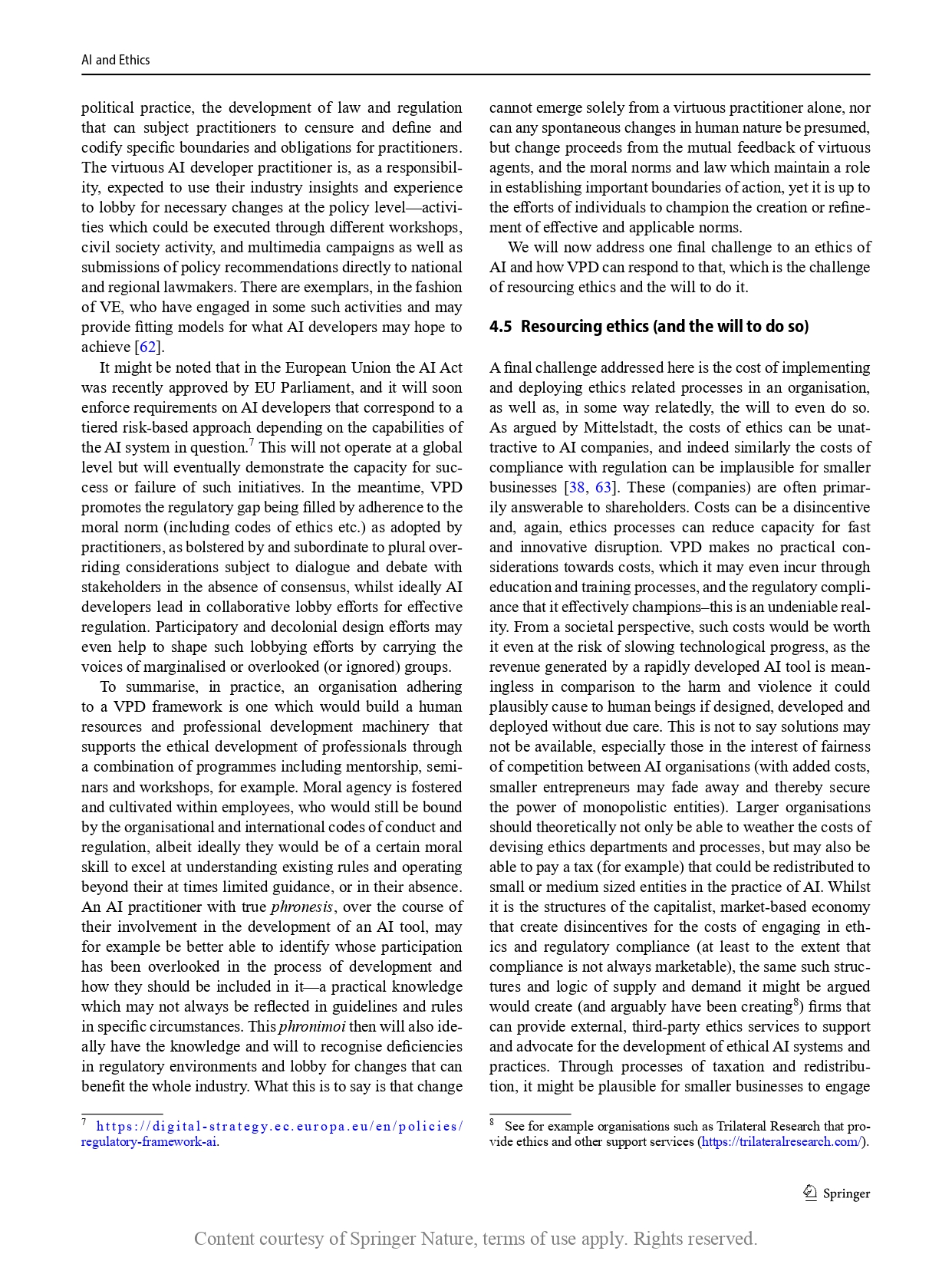
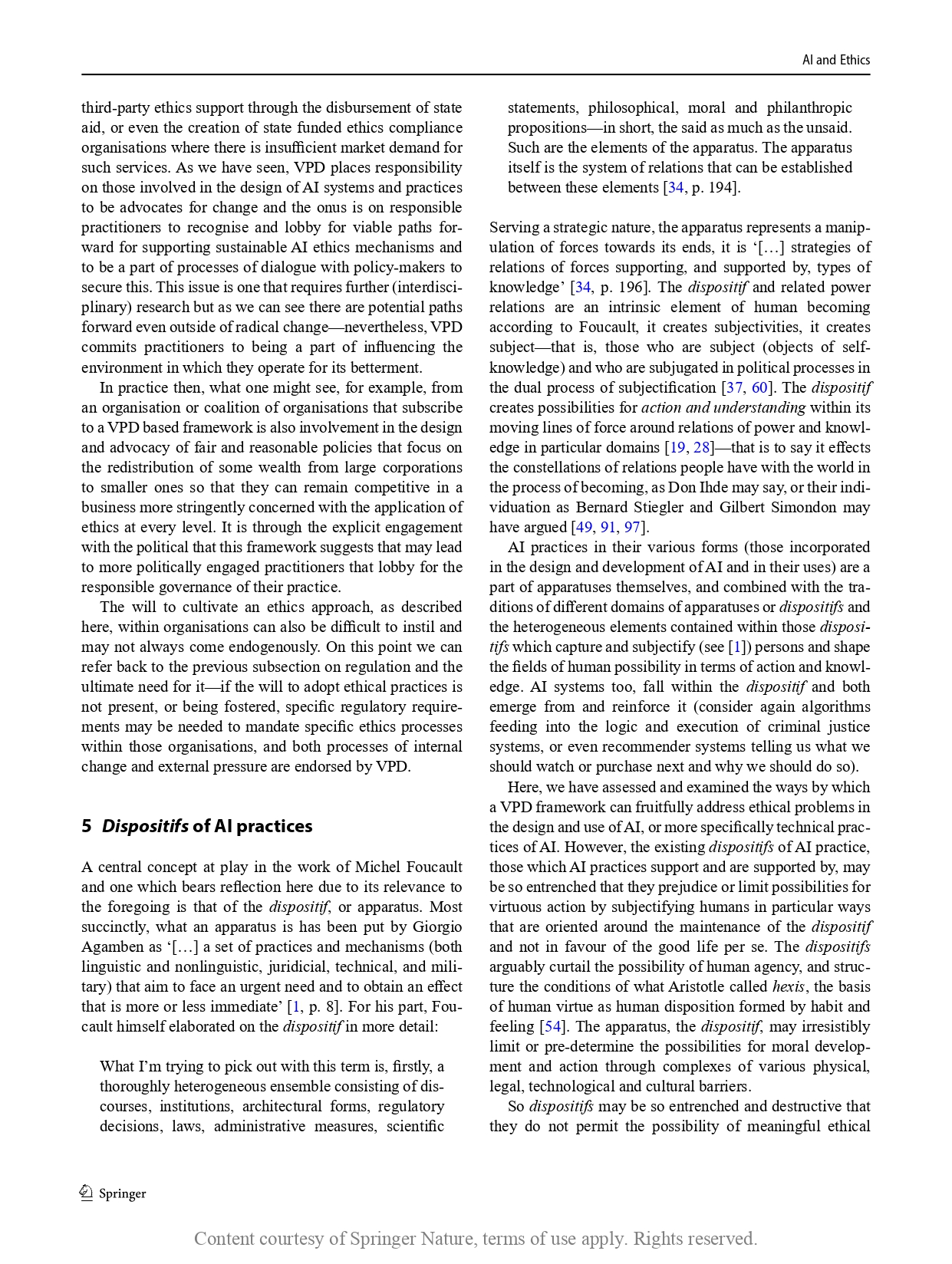
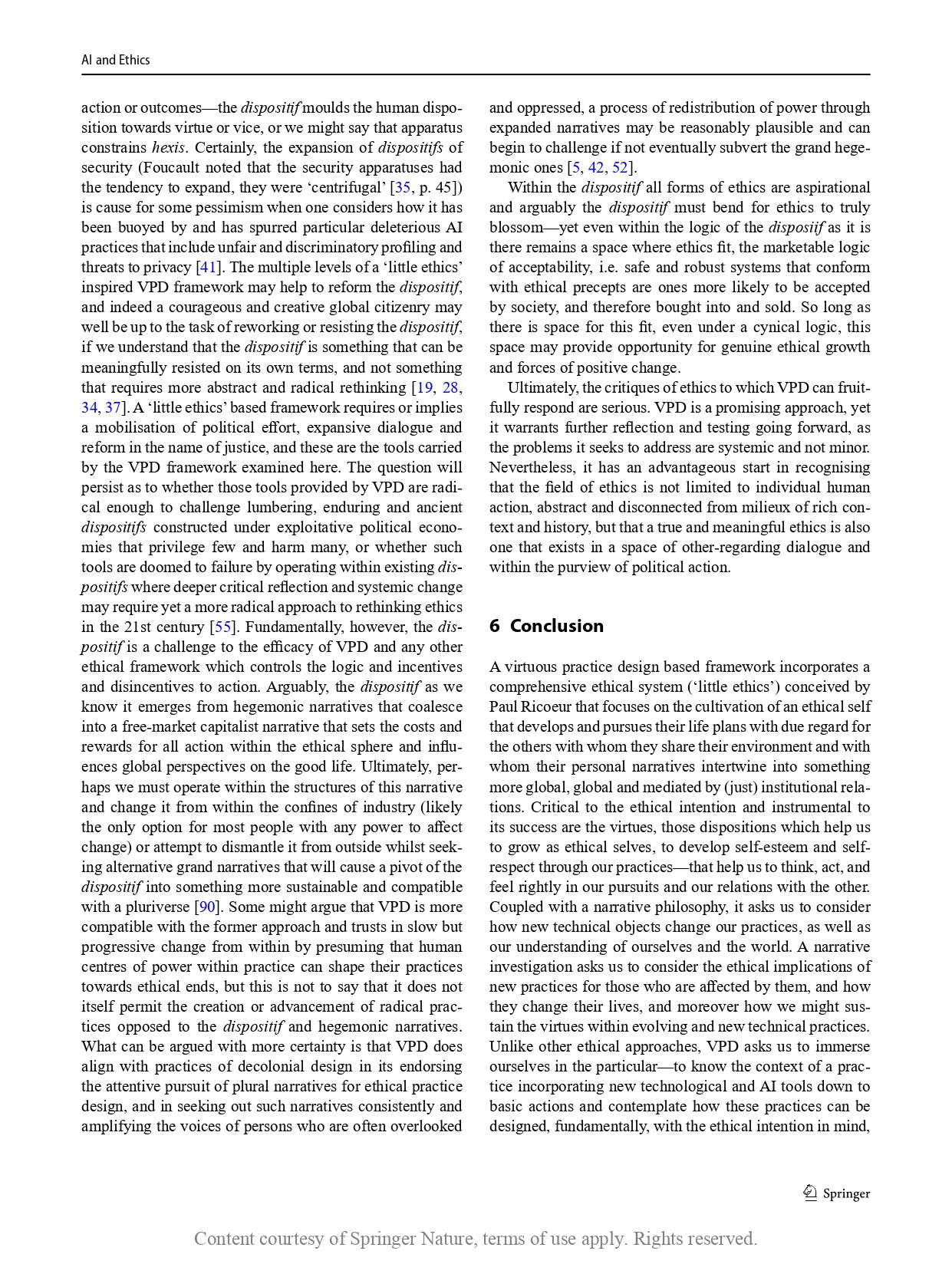
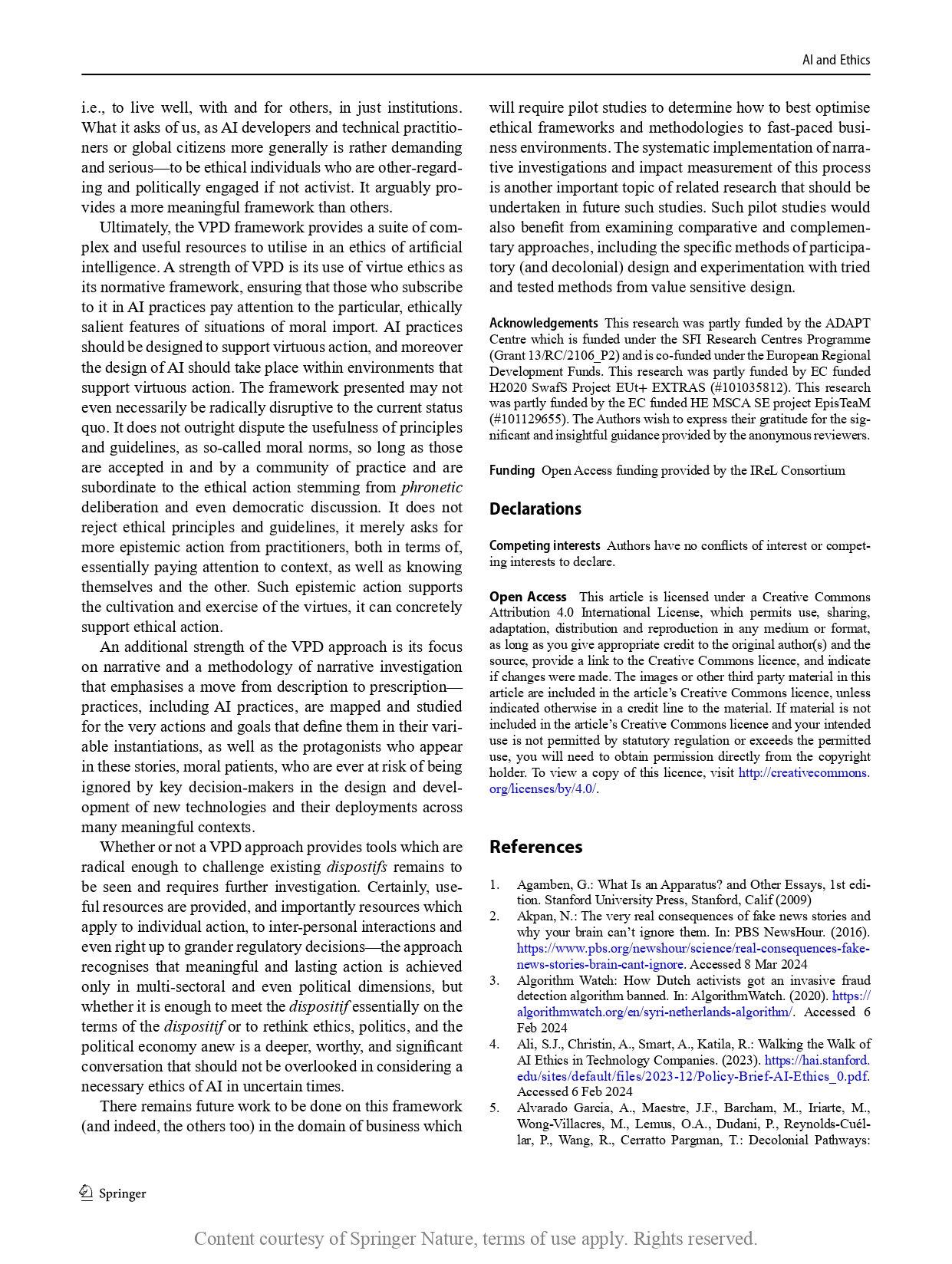
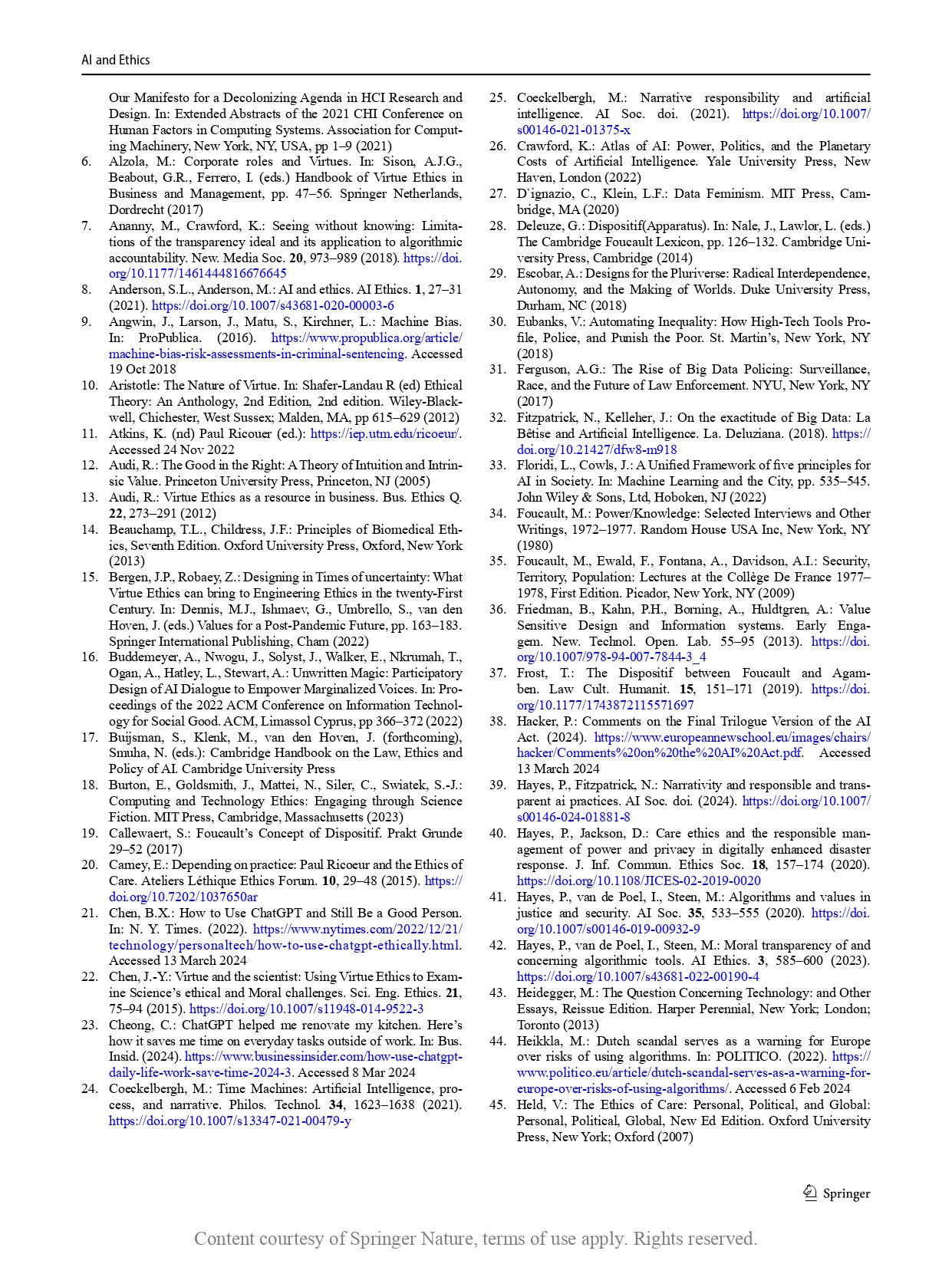
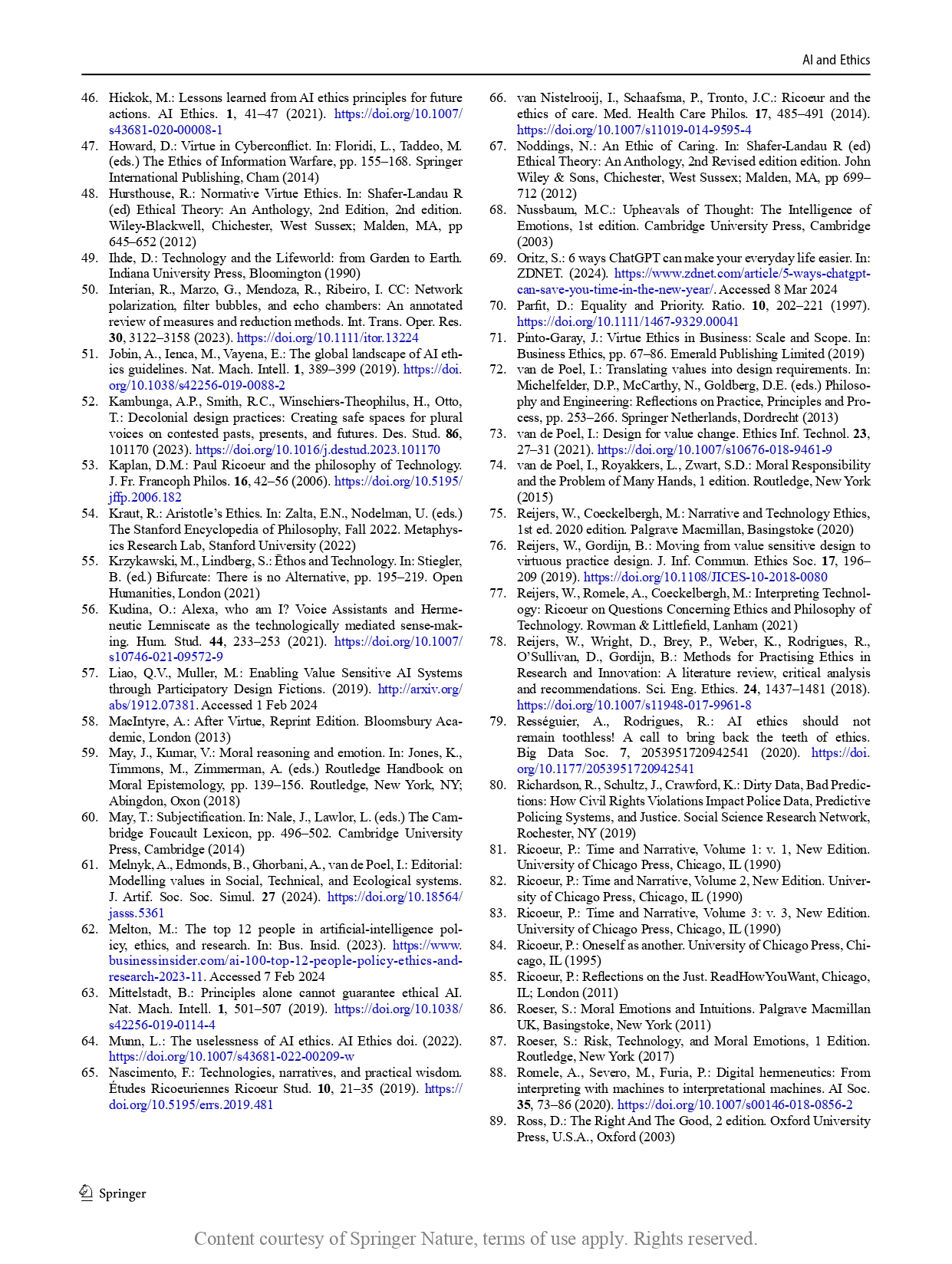
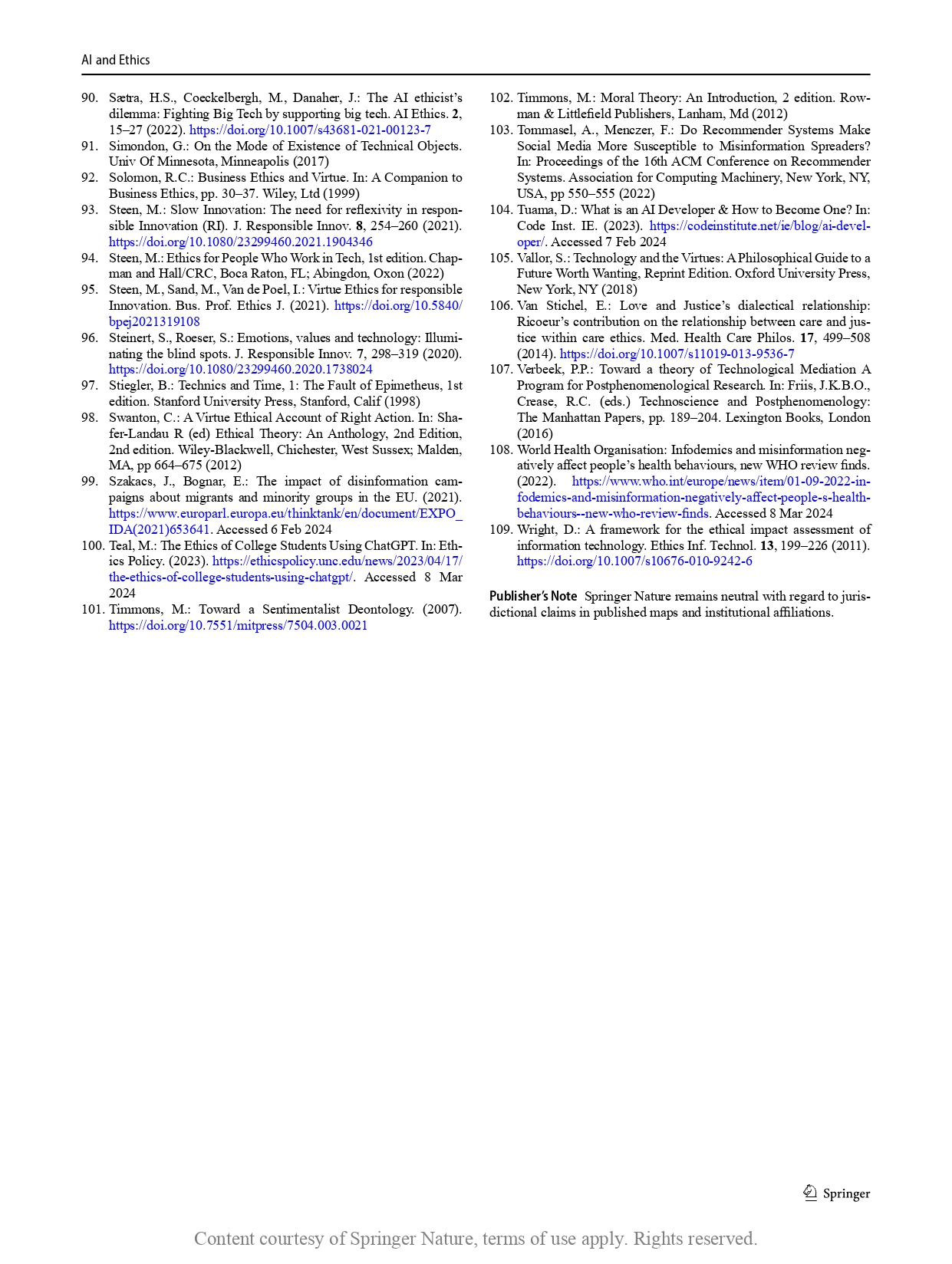
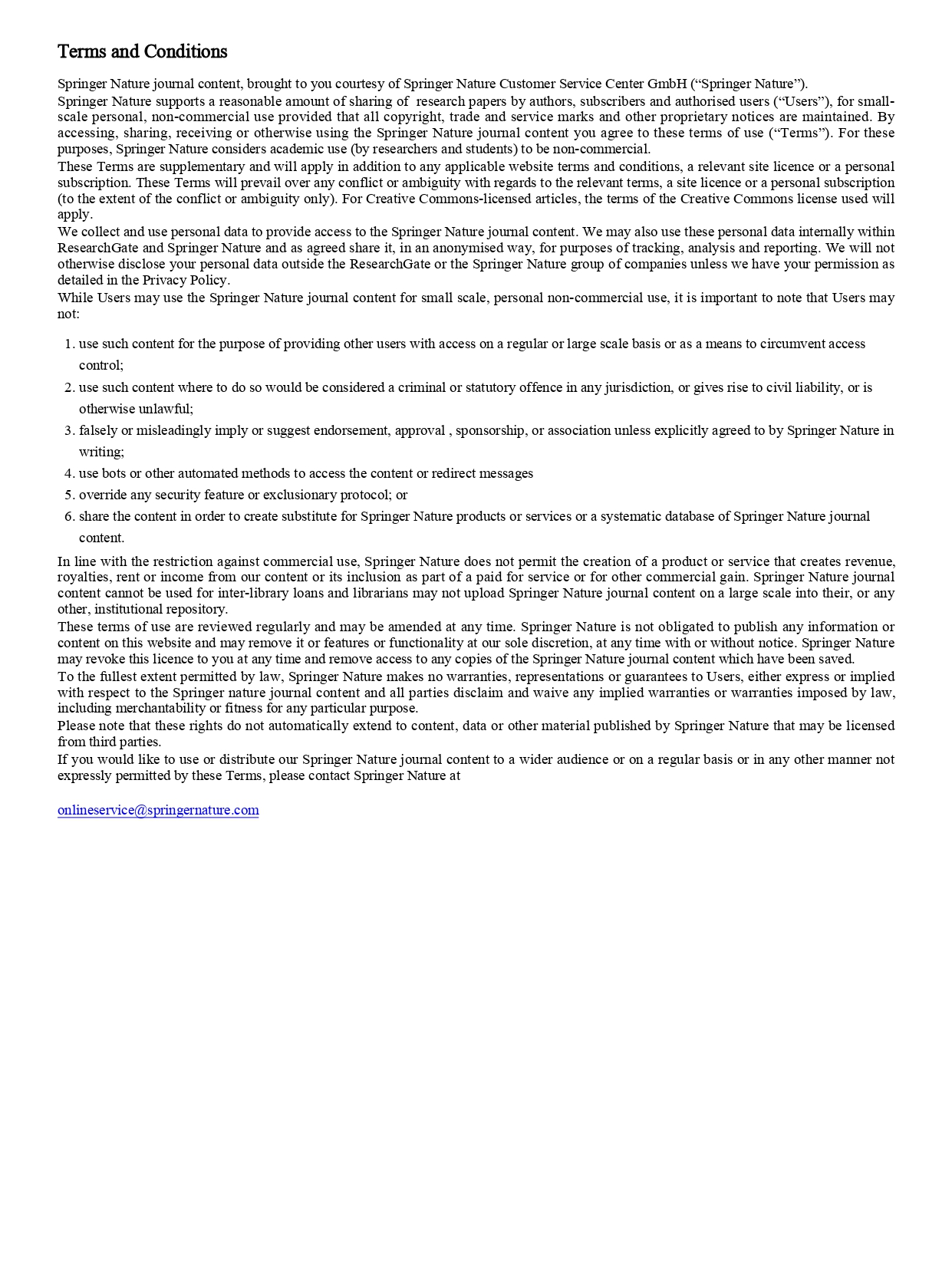
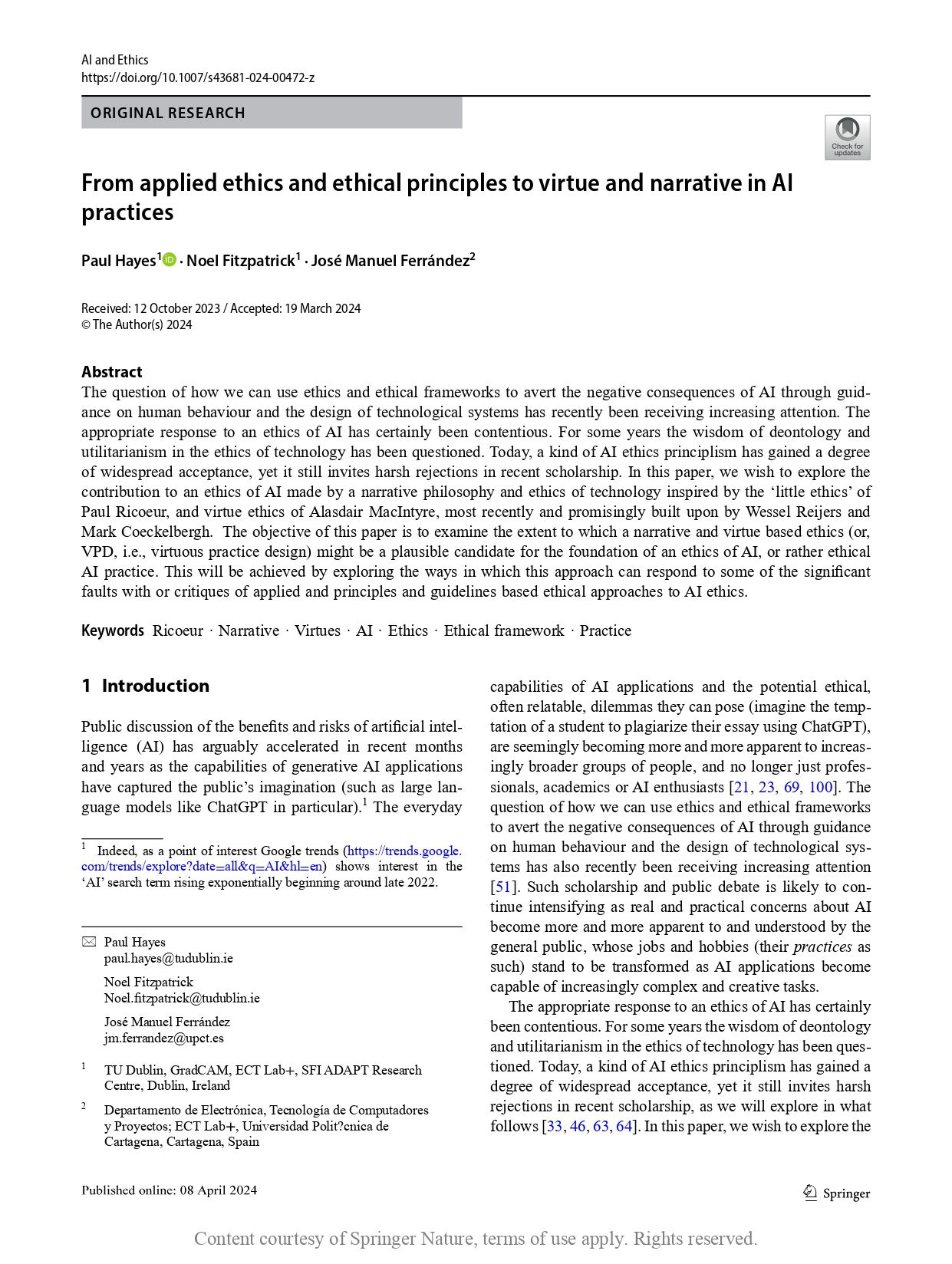
The question of how we can use ethics and ethical frameworks to avert the negative consequences of AI through guidance on human behaviour and the design of technological systems has recently been receiving increasing attention. The appropriate response to an ethics of AI has certainly been contentious. For some years the wisdom of deontology and utilitarianism in the ethics of technology has been questioned. Today, a kind of AI ethics principlism has gained a degree of widespread acceptance, yet it still invites harsh rejections in recent scholarship. In this paper, we wish to explore the contribution to an ethics of AI made by a narrative philosophy and ethics of technology inspired by the ‘little ethics’ of Paul Ricoeur, and virtue ethics of Alasdair MacIntyre, most recently and promisingly built upon by Wessel Reijers and Mark Coeckelbergh. The objective of this paper is to examine the extent to which a narrative and virtue based ethics (or, VPD, i.e., virtuous practice design) might be a plausible candidate for the foundation of an ethics of AI, or rather ethical AI practice. This will be achieved by exploring the ways in which this approach can respond to some of the significant faults with or critiques of applied and principles and guidelines based ethical approaches to AI ethics.
Authors
Paul Hayes, Noel Fitzpatrick, Jose Manuel Fernandez
Year
2024
Download
s43681-022-00190-4.pdf